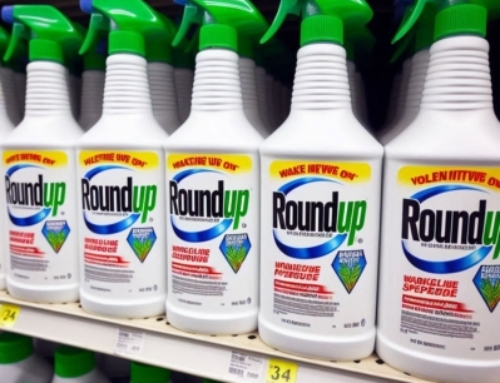Bryce Zundel, et al vs. Amerilure, Inc., et al
Case Background
On May 10, 2022, Plaintiff ·Bryce Zundel ND Diane Zundel filed a Product Liability lawsuit in the Massachusetts State Superior Court of Middlesex County (Case number: 502022CA005480). Judge Jackie A. Cowin presided over the case.
Cause
The Zundels alleged that the defendants designed, manufactured, and sold asbestos-containing products, including talc-based products containing asbestos. Bryce Zundel was exposed to these products during medical treatments involving talc pleurodesis in 2014 and 2020 in Salt Lake City, Utah. Doctors administered the defendants’ products intrapleurally around Bryce Zundel’s left lung. In September 2021, doctors diagnosed Bryce Zundel with malignant pleural mesothelioma. During his diagnosis, physicians observed talc aggregations covering most of his lower lobe surface, posterior parietal pleura, diaphragmatic surface, and pericardial surfaces. The Zundels claimed that Bryce inhaled and ingested asbestos dust, fibers, and particles from the defendants’ products during his medical treatments.
As a result of these exposures, Bryce Zundel developed malignant pleural mesothelioma. He suffered serious personal injuries, endured pain, and required ongoing medical treatment. The Zundels alleged that the defendants failed to exercise reasonable care in designing, manufacturing, and selling their products. They also claimed that the defendants did not provide adequate warnings about the dangers of their products.
Injuries
The plaintiffs alleged that Bryce Zundel developed mesothelioma as a result of exposure to asbestos-containing products supplied by the defendants. Mesothelioma is a rare and aggressive cancer primarily caused by asbestos exposure. The complaint stated that Zundel underwent a talc pleurodesis treatment in 2014, before his mesothelioma diagnosis. This procedure used talc to adhere the lung to the chest wall, which the plaintiffs suggested might have contributed to Zundel’s asbestos exposure.
The lawsuit claimed that Zundel’s mesothelioma diagnosis followed shortly after his alleged exposure to the defendants’ products. Boston Medical Products argued that due to the short time between the alleged exposure to its product and Zundel’s diagnosis, its product could not have caused his injuries. This defense raised issues about the latency period of mesothelioma and the challenges of proving causation in asbestos litigation.
Damages
The plaintiffs sought damages for Bryce Zundel’s pain and suffering, medical expenses, and Diane Zundel’s loss of consortium. They alleged that Bryce experienced conscious pain and suffering due to his mesothelioma diagnosis and treatment. The complaint also sought punitive damages against the defendants.
Key Arguments and Proceedings
Legal representation
- Plaintiff(s):Bryce Zundel | Diane Zundel
- Counsel for Plaintiff: Christopher P. Duffy, Esq.| Mark A. Linder, Esq. | Darron E. Berquist, Esq. | Danny Kraft
- Experts for Plaintiff(s): William E. Longo
- Defendant(s):Amerilure, Inc. | Boston Medical Products, Inc. | Cimbar Performance Minerals, Inc., individually and as successor-by-merger to Cimbar Performance Minerals MV, LLC | Lymol Medical Corp., f/k/a Bryan Corporation | Sciarra Laboratories, Inc.
- Counsel for Defendants: Daniel P. McCarthy| Michael F. McVinney | Thomas H. Balestracci, Esq. | Michael Cahalane, Esq. | Lawrence G. Cetrulo, Esq. | Kevin G. Kenneally, Esq.
- Experts for Defendant(s): Paul Endres, MD | Brent Finley, PhD
Key Arguments or Remarks by Counsel
“I’ve been doing asbestos cases for 30 years,” Duffy said. “Even the traditional asbestos cases are complex. This case was even more difficult because we were alleging that the client’s exposure came from a talc pleurodesis.”
Kraft explained that Cimbar’s liability stemmed from its use of talc from mines in a certain Chinese province. According to Kraft, Cimbar knew there was a problem with asbestos contamination from those mines but did little to test the talc powder it used in its products.
“They basically admitted that a speck of asbestos in their talc was too much because of the hazards associated with asbestos,” Kraft said. “Yet they tested a thimble full of the millions of pounds of talc [the company used]. Obviously, we argued that this wasn’t sufficient testing, which goes to our claim of design defect.”
“We were given this one bottle, had it tested, and found asbestos,” Kraft said. “Dr. Longo has conducted hundreds of tests of this talc ore [from China] for different companies, including Johnson & Johnson and Chanel, so we were able to introduce his testimony that the geology of the mines was contaminated.”
Kraft, meanwhile, said that a key to the outcome in the trial was his cross-examination of Cimbar CEO Albert Wilson.
“I cross-examined him for two days,” Kraft said. “He kind of folded on the stand and admitted to things we needed him to admit to. I was able to show that this was their talc product, they knew it was hazardous, they knew it could potentially lead to mesothelioma, and they did the bare minimum in terms of testing and should have been doing more, particularly knowing that their product was going to be used in a pharmaceutical application.”
Claims
The lawsuit included multiple causes of action against all defendants in a Product liability lawsuit. The primary claim was negligence, asserting that the defendants failed to exercise reasonable care in producing and distributing their products. The plaintiffs claimed that the defendants knew or should have known about the dangers of asbestos but failed to take appropriate precautions or provide adequate warnings.
The complaint also asserted claims for breach of express and implied warranties, alleging that the defendants’ products did not conform to the representations made about them and were not fit for their intended purpose. The plaintiffs argued that the defendants breached the implied warranty of merchantability by selling products that were unreasonably dangerous. Claims of manufacturing and design defects were also included, suggesting that the defendants’ products were flawed either in their production or in their fundamental design. These claims alleged that the inclusion of asbestos made the products inherently dangerous.
The lawsuit also included a fraud claim, asserting that the defendants knowingly misrepresented the safety of their products and concealed information about the risks of asbestos exposure. This claim alleged intentional misconduct by the defendants.
Defense
The Defendants responded to the plaintiffs’ complaint by denying most allegations and asserting numerous affirmative defenses. Boston Medical denied manufacturing or selling any asbestos-containing products that caused harm to the plaintiff. It claimed that its products were not defective or unreasonably dangerous, and that it provided all necessary warnings and instructions. The company argued that the plaintiffs’ claims were barred by legal doctrines such as the statute of limitations, lack of jurisdiction, and failure to state a claim. Boston Medical also claimed that any damages were caused by third parties or by the plaintiff’s own actions, not by its products.
The company asserted the learned intermediary doctrine and argued that its duty to warn, if any, had been discharged. Boston Medical denied any fraud, conspiracy, or breach of warranty and reserved the right to seek contribution or indemnity from other parties. It demanded a jury trial and denied all cross-claims for contribution or indemnification.
Expert Witness
Plaintiff introduced Dr. William E. Longo as their expert witness to test the talc product in which he found the asbestos. The Defendants disclosed two expert witnesses, pathologist Dr. Paul Endres and toxicologist Dr. Brent Finley. Both experts opined that Bryce Zundel’s pleural mesothelioma either occurred spontaneously without asbestos exposure or was caused by his age.
Jury Verdict
On September 13, 2024, the jury awarded Bryce Zundel damages across several categories. They granted $3,000,000 for past pain and suffering and $21,500,000 for future pain and suffering. For medical expenses, they awarded $925,000 for past expenses and $925,000 for future expenses. The jury also awarded $481,142 for past and future household services and Social Security retirement benefits. Additionally, they granted Diane Zundel $1,500,000 for past loss of consortium and $10,750,000 for future loss of consortium due to Bryce’s mesothelioma. The total damages awarded amounted to $39,081,142 in a Product liability lawsuit.
Court Documents:
Available Upon Request
Press Release:







Leave A Comment